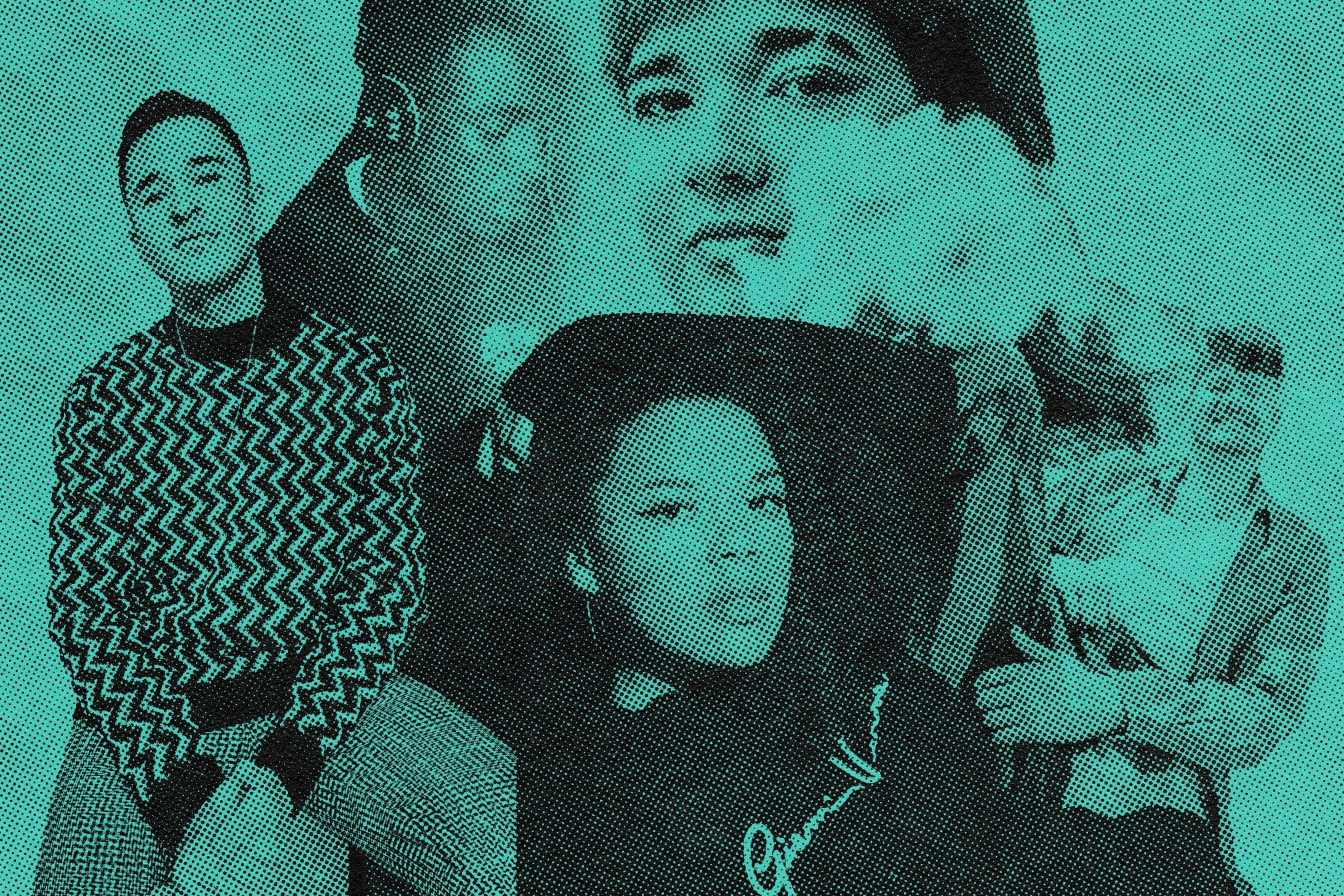 Features
Features
"It went completely nuts": 5 DJs on their career taking off during lockdown
How does it feel to return from a long gigging break to find a new legion of fans raring to see you play? Gemma Ross speaks to five artists who hit new levels of popularity during lockdown
It’s safe to say these past couple of years haven’t been the most thrilling. For some artists, 2019 was the year that everything started to fit into place — more gig bookings led to more recognition in the dance music domain, and more fans led to playing bigger venues at peak-time slots. A fresh wave of DJs had their sights set on 2020 as a breakout year, hoping the years of honing their craft would pay off and take them to the next level. Then the dreaded virus crept its way around the wider world at the beginning of 2020 swallowing every anticipated event in its path, and the year fragmented into lockdowns broken up by the occasional outdoor gathering or socially distanced pint.
Read this next: "I'm 19 and never been clubbing": The pandemic is blocking a new generation of ravers
Despite the strain the pandemic has exerted on the music industry and being an artist, new DJ stars have risen up amid the uncertainty and reached new levels of popularity. Like our recent cover star Fred again.., who was a respected behind the scenes producer for years but emerged into frontline fame during the pandemic, drawing a packed out crowd of 10,000 at his debut live show last summer and stammering his breathless shock in between tracks.
For these artists, the extended break from clubbing made its return all the more emotional, with new legions of fans lining up to see their sets and no time to acclimatise to their steady climb in prominence. We caught up with a handful of DJs and producers who used their downtime to forge something great and then kicked things up a notch across 2021. Read on as we discuss everything from new fans, rave fatigue, day jobs, lockdown-formed initiatives, and some of their most exciting moments since getting back behind the decks.
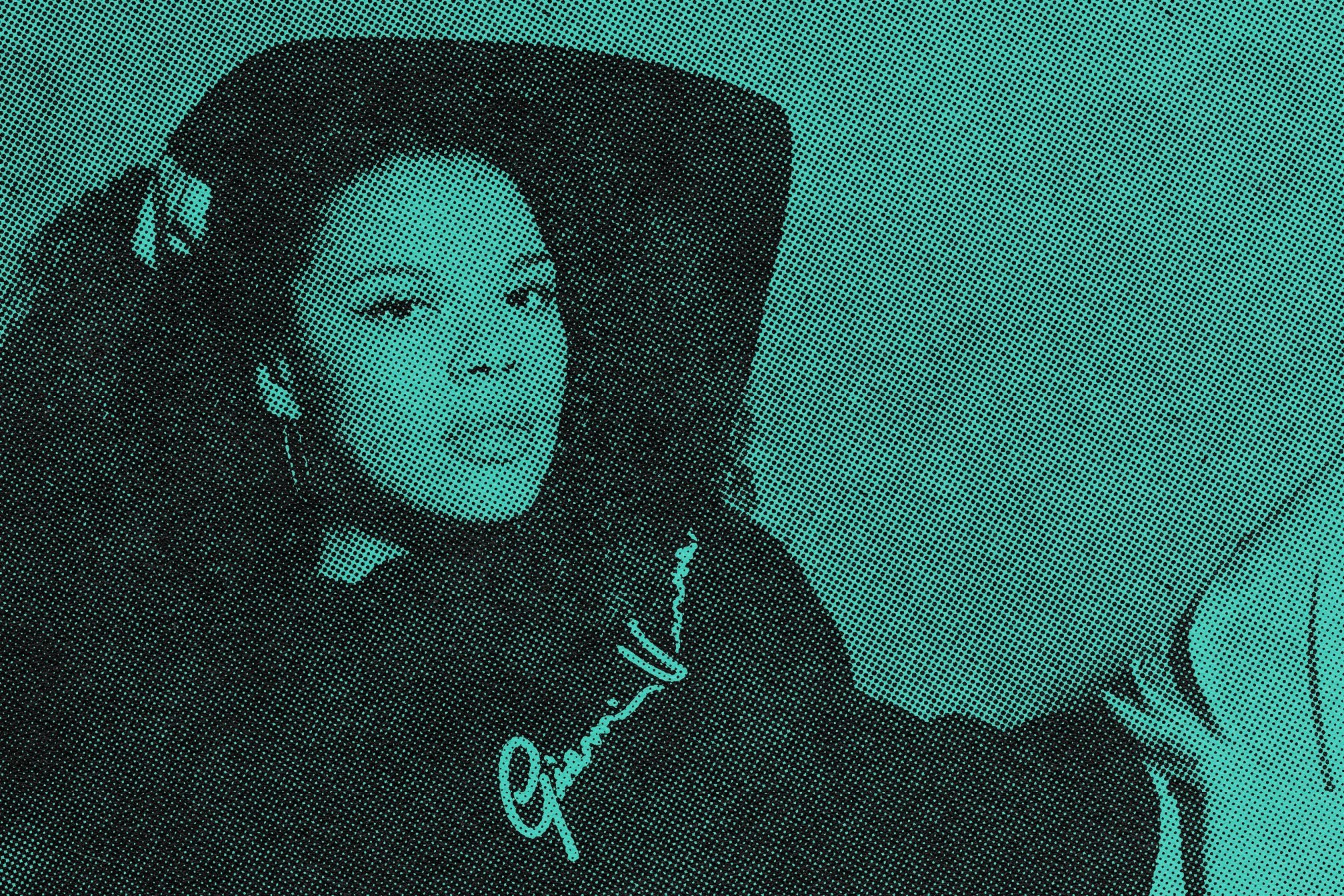
JAGUAR
Hosting a national radio show is a whole different skillset to being a club DJ, but Jaguar has no issues pursuing both and fitting into that extroverted pocket. When she took over the BBC Introducing show on Radio 1 Dance at the start of April 2020, Jaguar piqued the interest of listeners around the UK with her tastemaking sensibilities. A natural when it comes to both presenting and selecting, Jaguar gave airtime to more than 6,000 up-and-coming artists in the show's first year. She's regularly spotlight underrepresented talents, and launched some impressive initiatives fortifying a space for women, trans, and non-binary people to build their own music careers and share their experiences. 2020 was the year that Jaguar set the pace for the next, and when the lockdown walls were knocked down mid-summer, the DJ found herself playing the historic First Dance pilot party in Liverpool, booked for festival line-ups around Europe, and even took to one of the UK’s largest arenas in November for a once-in-a-lifetime Wembley show.
Could you tell me a little bit about what you were doing pre-lockdown?
In terms of radio, I was doing a live electronic show on Reprezent every Saturday night for about two years which was fun, I got a lot of broadcasting experience from that. I was DJing smaller events around London and a few festivals, and 2019 was the first year that I started working with my agent. Things just started to kick off then - 2020 was looking like it would be a big year for gigging. I was looking forward to getting out there and touring more, but was also quite lucky because it wasn’t until the lockdown when my Radio 1 show started up, so timing-wise, it worked quite well!
How did you get involved in that?
I started working on the student radio at Uni as an extra-curricular activity and then got really into presenting. Then I interned with Radio 1 and 1Xtra when I was 19 during the first my first summer at Uni, and from there, I felt like I had to get into radio, I just loved it. I started applying everything I’d learnt from my internship into my course and started working with BBC Introducing as a team assistant, and moved to London with that and Mixmag [Jaguar was Mixmag's weekend editor for a stint and previously presented our Lab LDN events], so I guess my background was more behind the scenes stuff! 2020 was just a huge year behind the scenes, it laid the groundwork for 2021.
Future1000 has had a big impact on the dance music community this year, what was your motivation behind starting that up?
Future1000 was born in the pandemic and again, I’m grateful for that time and I’ve seen a lot of success coming out of it now. My manager and I were like, ‘what can we do in this time where we can’t do the obvious stuff?’. One of the main things I wanted to do was to help the gender issues and instead of just sitting on a panel and talking about it or doing something we’ve done a million times, I wanted to actually make a change. I did a few bits with FutureDJs who worked in schools — you can get a GCSE in DJing now because of those guys! I pitched the idea for a course for girls, trans and non-binary people to encourage more DJing. They were into the idea and went with it! I expected it to resonate, but not in the way it really has in the dance music community. We’ve brought so many young people into the world of music and DJing and have actually been able to give them a few gigs recently now that COVID allows, it’s really special.
Read this next: "Coronavirus will never stop the rave": How people are finding new ways to party online
How is your podcast going, UTOPIA Talks?
Another crazy lockdown idea! Looking back, I’m so proud of the podcast. We’ve actually just been nominated for a best music podcast award which is crazy! I did one initially just over a year ago in autumn 2020 after Erick Morillo died and the complexities around that - a prolific DJ who raped and abused women. I called it UTOPIA Talks as a very in-the-moment thing and got onboard DJ Paulette and Sofia from HE.SHE.THEY and Lauren Flax. We had a chat about it and what it meant for us as women in dance music. I liked that I could translate the conversations I was having at the time into a podcast. We mapped out around eight episodes, discussing the Black roots of dance music with Fabio, how vocalists are treated in house music with Rowetta and Becky Hill and Angie Brown, talking to Sama’ Abdulhadi when she was in Palestine, and just really hard-hitting stuff. It’s about having these conversations and striving to get to a utopian world - Utopia is also my club brand so it all stems into that. I’m grateful to have had the time to have these conversations with such amazing people, I’ve learned so much!
What have been some particular highlights from the past year or two?
Playing The First Dance in Liverpool with Heidi was insane! She’s someone I adore and used to go and see with my friends, she’s an icon. When they asked if I wanted to play b2b with her I was like, ‘um, yes?!’. I called her like a week before asking how we were going to prepare for the gig and she was like, ‘honey, I don’t prepare for my back-to-backs!’. So, I just put together some tunes that I thought would go well with what she would play and just went for it. It felt like some magic was happening behind the decks, everyone was so pumped to be there too. People actually know who I am now, I never expected anyone to know who I was!
Read this next: How to B2B: Six DJs share wisdom on the art of sharing the decks
What’s next for you?
I’m going to start more initiatives like Future1000 - that isn’t going anywhere, but we’ve also just started up the Jaguar Foundation as a soft launch. We want to start initiatives in line with what we can do to help gender equality and bringing people forward. And the radio show! That launched in lockdown when it was needed the most and when artists couldn’t play their music in clubs, there weren’t many avenues. My show has built this community of amazing new artists in dance music and we’ve now been promoted to Thursday nights on Radio 1! I’m so proud of that and this community, it means the world to me.
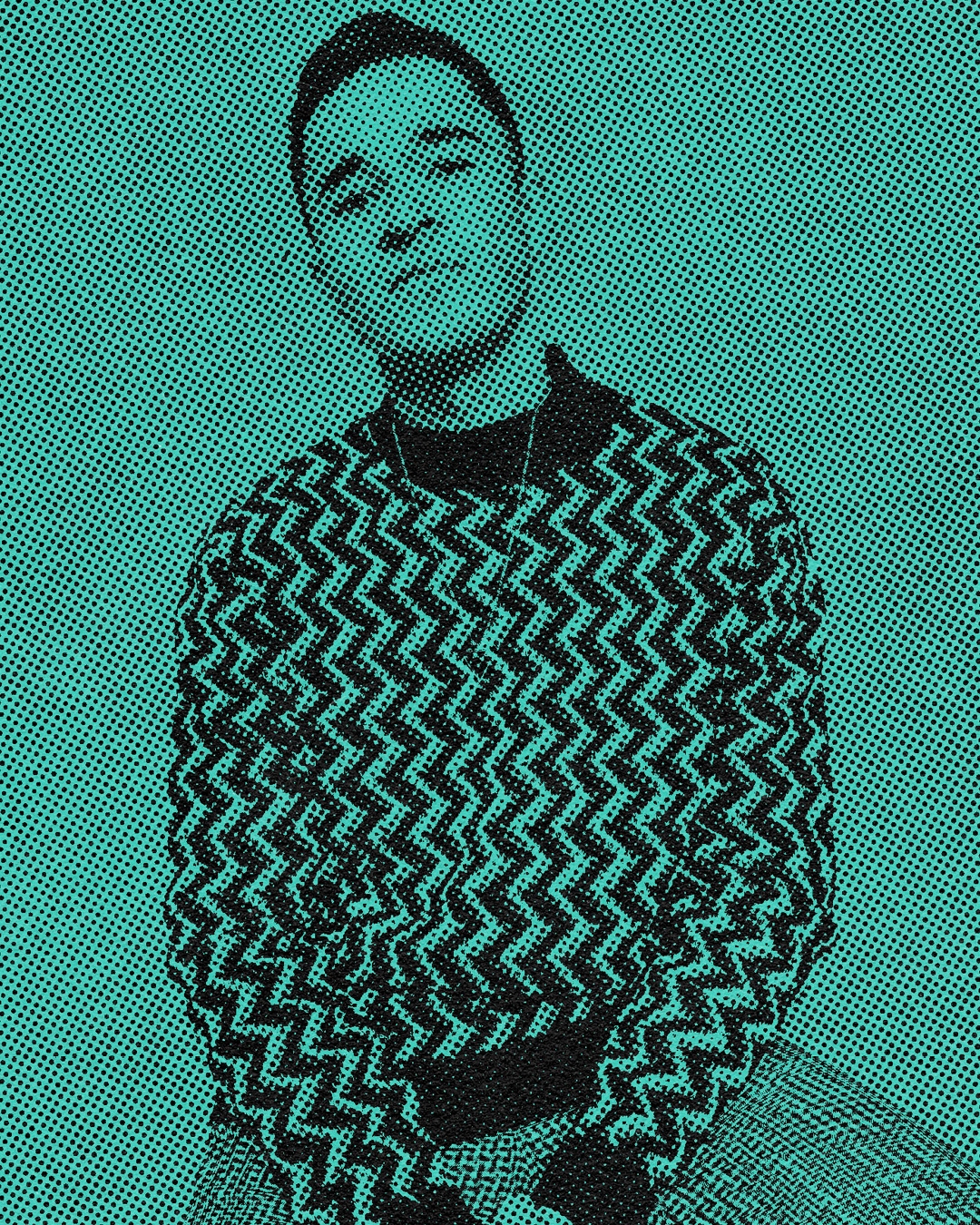
JOHN SUMMIT
Hailing from Chicago, US-born John Summit has been unstoppable since the release of his Defected-released 2020 track ‘Deep End’. The catchy tune was Summit’s window to roaring success as it racked up over 30 million streams on Spotify and set him on a mission to tour the entire globe with whisperings of his name reaching every far corner. The globally-revered DJ continued releasing vocal-led house tracks right through the pandemic and now caters playful content to an immense fanbase via Instagram, where he can regularly be seen necking bottles of spirits on stage or posing with his suitcase in more countries than you probably knew existed.
You’re touring all the time at the moment, I see you pop up everywhere!
It’s literally nonstop! During the week I chill out, it gets a little busy and the hangovers get quite rough. I did a show in North Carolina on Friday, then another on Saturday, then Sunday I played in Atlantic City and got to Miami last night.
I take it that being from Chicago, you’ve come from a second generation of house heads?
Yeah, definitely. Lollapalooza was probably my introduction to electronic music. House has always been big here, but when I was growing up, EDM was the bigger sound. I was never into it — I liked the vocal hooks and melodies of EDM which is why I sometimes use those in my tracks, but the drops I always found too much. What’s cool about Chicago and the parties here is that the classic house sound is so stripped back, which I fell in love with.
Read this next: 30 of the best Chicago house tracks
When did you start making music?
About five or six years ago, so not long ago. I went headfirst into it back when I was studying accounting at college which I hated, so I would find anything to do on my computer other than that. I would open up Ableton at the library and spend about eight to 10 hours a day making music rather than studying. I had my first label release within a year of making music, and since then I’ve had a release every month or two. I started with small crews playing 50-people parties and they kept getting bigger, and bigger, and bigger.
Did you start playing parties around the same time you began producing?
Yeah, well, I DJ’d in college playing other people’s records, but there’s no better feeling than playing your own music. So I pretty much started DJing and producing at the same time and both of those have kind of grown together, too, because I didn’t have the most mature style of DJing when I first started. I like seeing the growth and I hope it shows me maturing as a person, I’m sure some of my older stuff was out of key because I didn’t even know music theory!
What were you doing before the pandemic?
I was an accountant! I got my masters and CTA in accounting, I think my license just expired though so I’m not a certified accountant anymore, but I passed all the exams. I was always DJing and producing and had a few releases out, but I was still working in accountancy because I didn’t make much from playing gigs. It’s kind of a joke in the industry playing for exposure, but that’s what I was doing. I really had the ball rolling just before the pandemic even though I wasn’t well-known across the pond, so I started making music for like 14 hours a day during lockdown and now, it’s my full-time job.
Read this next: 'Pay-to-play' is not OK: Stop the dodgy promoter tactic exploiting young DJs
Was there a surreal moment where you realised that things were falling into place?
When I made ‘Deep End’, I created the record at night and sent it out late because I knew the UK timezone was ahead. I woke up to an email from Defected Records saying like, ‘okay, let’s get on a Zoom call right now’. It was insane because it normally took months and months of sending things out. It all really clicked when I heard Pete Tong saying ‘this is John Summit and this is the essential new tune’ - I’d been listening to him for years so to hear him say that was absolutely crazy.
So, you basically woke up famous?
Haha, well at the time I was still living in my parent’s basement! My parents had no idea what was going on, I was totally freaking out. It was during the peak of lockdown so I could only celebrate with like five friends, and it was only when my parents started getting calls like ‘hey, I’m hearing John’s song all over the radio’ that it clicked for them. They’ve been my biggest supporters through this whole experience.
What’s next for you?
I guess touring the rest of the world! There are still places that haven’t opened up yet which is crazy because it feels like I’ve been touring like mad and there are still people waiting to see me play. Longer-term, I want to start my own label, start my own parties and bring those to Ibiza and other places. Just keep it going, really!
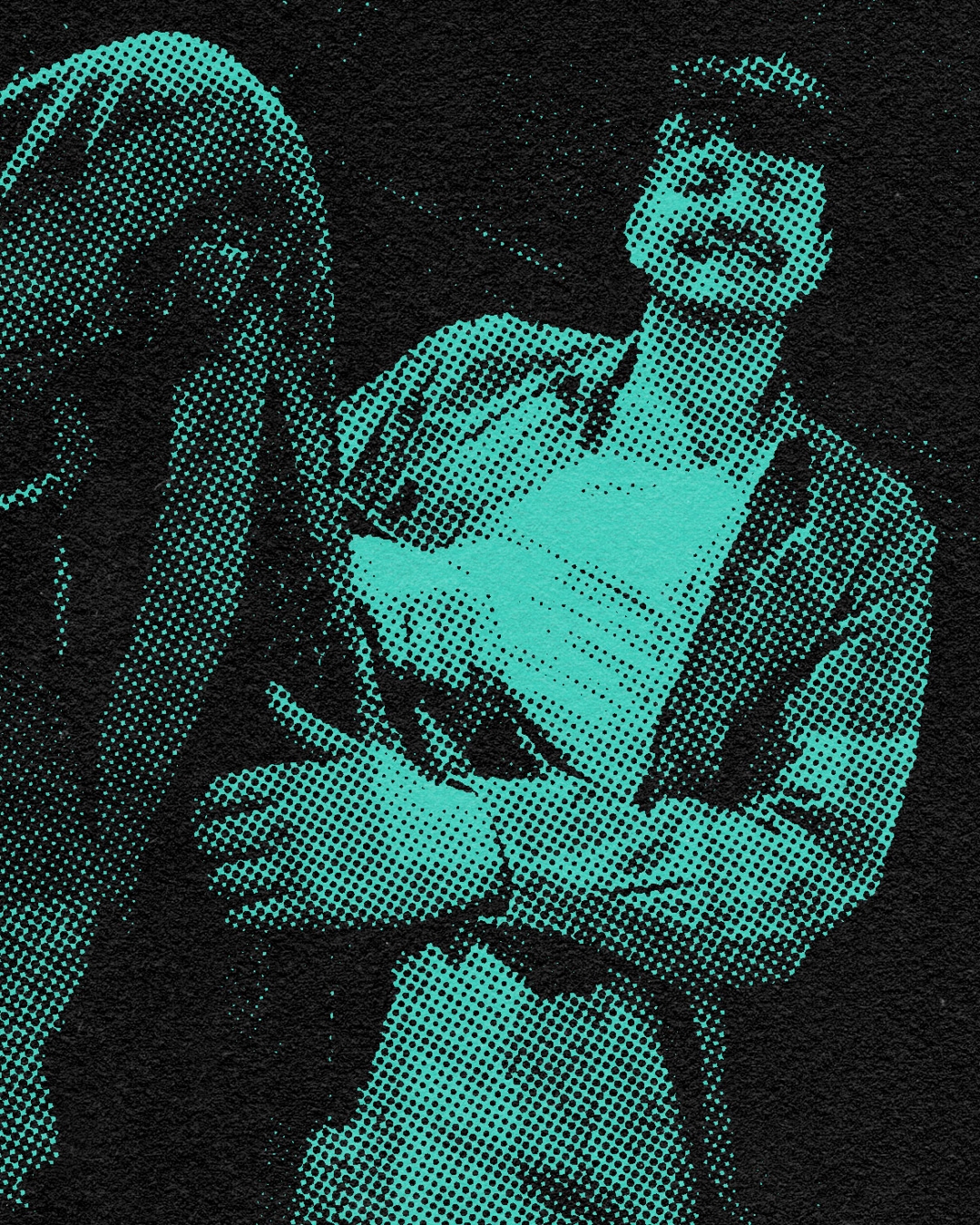
JOY ANONYMOUS
When we catch one half of Joy Anonymous, Henry Counsell, he tells us that he’s just, very casually, at The Blessed Madonna’s house working on her next record. If you’d told Henry this just a year ago, he might have laughed. When the duo of Joy Anonymous took to Southbank’s shores at the start of lockdown to bring some light back into the lives of passers-by, both Henry and Louis didn’t imagine 500-strong crowds to gather and boogie to their infectiously dance-able spontaneous sets. Since their regular ‘meetings’, as they refer to it, the pair have had their name projected onto the Tate Modern, and even have their own blue plaque mounted on the wall to show where it all began, just one year ago. Now, Louis and Henry have an entire body of music produced through the pandemic to soundtrack that experience.
What was the inspiration behind Joy Anonymous and how did it come about?
I used to go to alcoholics anonymous and narcotics anonymous with friends to support them because they were often nervous to go by themselves. I took to the idea of how amazing it is that you can have a bunch of people sitting in a room where some veterans can share their stories and newcomers come and go. When they come back again and again, they tend to feel confident enough to share themselves. It’s a really beautiful concept regardless of the step-by-step process, it’s just a great thing for humans. My partner in Joy Anonymous, Louis and I were like, ‘why don’t we try and put joy in the corner of that?’. We thought that if we started sharing our joy stories then maybe others would, too, and maybe it’s a way to help people find their own joy in life. We started going to retirement homes in 2019 to do these meetings and were planning to head to prisons and other places, but then lockdown happened. We were like, ‘right, we’re bored as hell, why don’t we start playing in the street?’. So we did it every night for a week and by the end of that, there were about 300 or 400 people in a circle!
When did that start?
I wanna say April of 2020, just at the peak of the first lockdown. Everything was closed so we were just doing it for passers-by in Southbank where we live. We just took a little speaker out with a battery and did our thing, then people started walking past and saying ‘this is great’, so we decided, ‘alright, let’s do this every day’. I think we’ve done 80 of them in total now for about six hours a night.
It’s amazing how it’s had that natural growth! Did you see the numbers pick up a lot over time?
Yeah! I think the biggest crowd we had was on the May bank holiday this year where we had about 800 or 900 people - we had this huge crowd all the way around the Tate Modern.
Did you have many run-ins with the police during those mini gigs when everything was shut down?
Yeah, but weirdly they never mentioned COVID once. They came most nights, and if they’d mentioned it we would have packed up and left, but I think because we were outdoors and everyone was quite distanced initially (although there were some nights where it got out of hand), the police were on our side because of the nature of how we were doing it, it was very wholesome. Although, they did eventually make a law against outdoor gigging and banned us from Blackfriars Bridge and Waterloo Bridge. There was a signpost reading something like: ‘dear the guy in the hat, you have to stop playing here’! We found out it was actually private land owned by the National Theatre so they were essentially responsible for a big COVID meeting.
Read this next: “Freedom and thrill”: The lockdown project paying homage to the rave
You released your debut album earlier this month, what was the reception like to that?
It was lovely, all the people at our shows loved it because they were part of it. It felt like a flagpole moment, all of the people we wanted to hear it and play it, did. Your Benji Bs, your Pete Tongs, we just keep making the most of it as we go on.
I know you were making a lot of music before you started playing down at Southbank and now you’re releasing more, do you find that your audience has grown quite exponentially at the meetings?
Oh yeah, definitely. Almost everyone that follows us now we’ve had conversations with and it feels almost punching on a cult!
Tell me about some of your standout moments of this year, any poignant memories?
I think the first Friday we played was pretty insane, there were about 300 people and we were just like, ‘Jesus, this is mad’. People were coming up to the mic and playing everything they’d been going through which was pretty emotional. Those meetings just grew and more people came with more mad stories. This couple came up to us saying, ’we had our first date at your meeting and now we’re married!’. Some people would come and because of the lockdown, couldn’t get home, so they would just come to the meetings to be part of something. We’ll have those meetings for the rest of our days. I think when we’re grandparents walking down Southbank, we can just say, ‘this was ours’, haha.
What are the next plans for you?
We’re going to take that show to other countries, we want to do something similar but have the same spontaneous feel on a bigger scale. Just places you wouldn’t normally go on a tour like Albania or Istanbul. We’re working with different artists in different countries so the idea is to get people invested in that growth and make an album based on that journey.
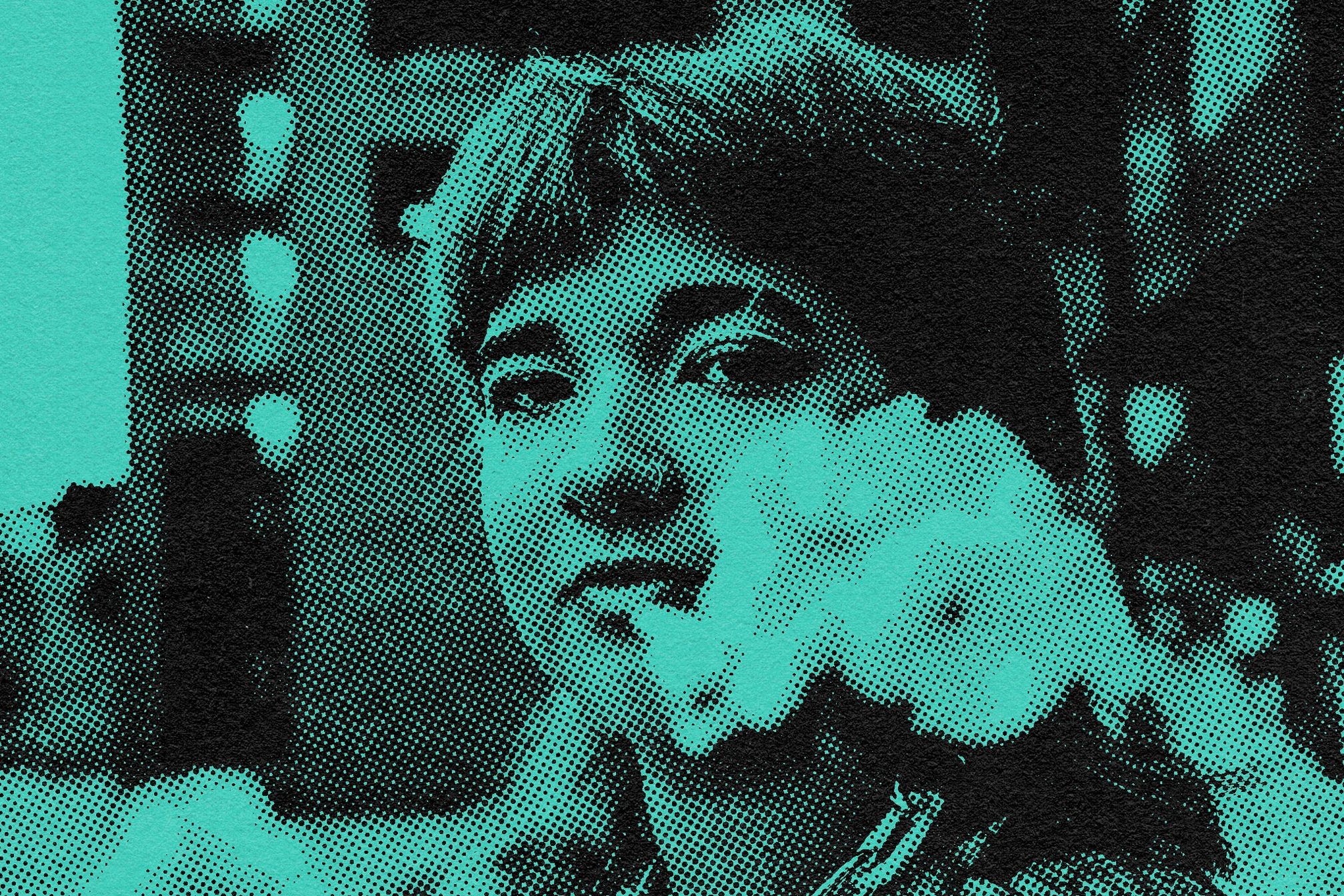
GRACIE T
Gracie T’s name has been spreading like wildfire since the whirlwind Boiler Room performance alongside Chandé for the Yung Singh presents Daytimers takeover in August. Her full-frontal fusion of breaks and garage commandeered by Bhangra and traditional South Asian music is finding its way to the ears of thousands, and it doesn’t look likely to stop anytime soon. The DJ is also a pioneering member of the now-global Daytimers collective and launched her own initiative named The Beatriarchy just last year to help redress underrepresented talent across the country and beyond.
Tell me a little bit about your story pre-pandemic, what were you doing?
I’ve been DJing for quite a while now and playing the drums since I was about eight-years-old, so this is something I’ve been working away at for a while now. Pre-COVID, I was gigging almost every weekend for about six months in Sheffield, things were very busy but I was very much just a local DJ. I was always the go-to for support slots and just supported Anz on her last gig before lockdown just days before everything shut down, that was mad.
Do you find that you’re getting a lot more recognition around the rest of the UK now rather than just Sheffield?
Oh, definitely. I don’t think I’d gigged in any other cities apart from Sheffield before, and after the Boiler Room, it just went completely nuts. I’ve been playing all over!
What was that experience like taking on a Boiler Room gig?
It was good but very overwhelming in a lot of ways. I was suddenly just thrust into this public position on social media - a lot of response was super lovely and supportive from all over the world, but also a lot was quite horrible which was a weird experience.
Have you seen a surge in fans as a result of that event?
Yeah, there are people of all ages who come to mine and DJ Priya’s shows regularly now! There are a few mums in their late 30s who send us really lovely messages about how they hope their kids will look up to us and wholesome things like that. We do get regulars now at shows which is really lovely.
Read this next: What Do Your Parents Think?: 4 South Asian DJs share their family's reception to a music career
You’ve been quite prolific this year championing underrepresented artists with The Beatriarchy, how did that come about?
The Beatriarchy is something that was actually born out of lockdown, me and Kitsta were sick of feeling belittled on social media platforms where the music industry kind of moved onto because we couldn’t gig, so we made The Beatriarchy Facebook group as a place to share tunes and get feedback on music that people were making without feeling like someone was going to patronise you or talk down to you, and now it’s grown into this bigger platform.
What’s your role in that - do you help push smaller artists out and help them get spotlighted?
Yeah, it’s more of a network really. We’ve connected people who then met others on the platform, released their first EPs, got into production, found gigs in different cities, and just generally linking people up with others who are respectful and kind in the industry.
Daytimers have had an enormous reception this year through festivals and livestreams, how have you seen that grow over the past 12 months?
That’s been absolutely insane, to be honest. It blew up from something with just the six of us who never really thought it was going to get this big. We started it up at the beginning of lockdown as a way for us to connect with other brown people in music and form a community that hasn’t really existed since the 90s, and now it’s global.
Read this next: How daytime raves introduced clubbing to a generation of young British South Asians
What was the inspiration behind it? And what’s the future for Daytimers?
None of us actually knew each other! We were all people that Provhat [Rahman] and Sherwyn [King Monday], who started it up, found on the internet. It just got bigger and bigger, it was just the power of social media that kickstarted it. I think we’re going to keep doing the events we’re doing, we’ve got another Dialled In Festival coming up again soon which will be great. But to be honest, we’re just using this time to reflect. The thing with collectives is that it can always be improved and we can always work on how we want to make a bigger difference, and that’s something that the Daytimers try to do we want to be very self-reflective.
And what about yourself, what are your next plans?
I’m a secondary school teacher, so I’ve been having a bit of a crazy time recently! I’m trying to take it a bit easy for the next few months. I’ve got some festivals coming up in the summer, I think that should be fun.
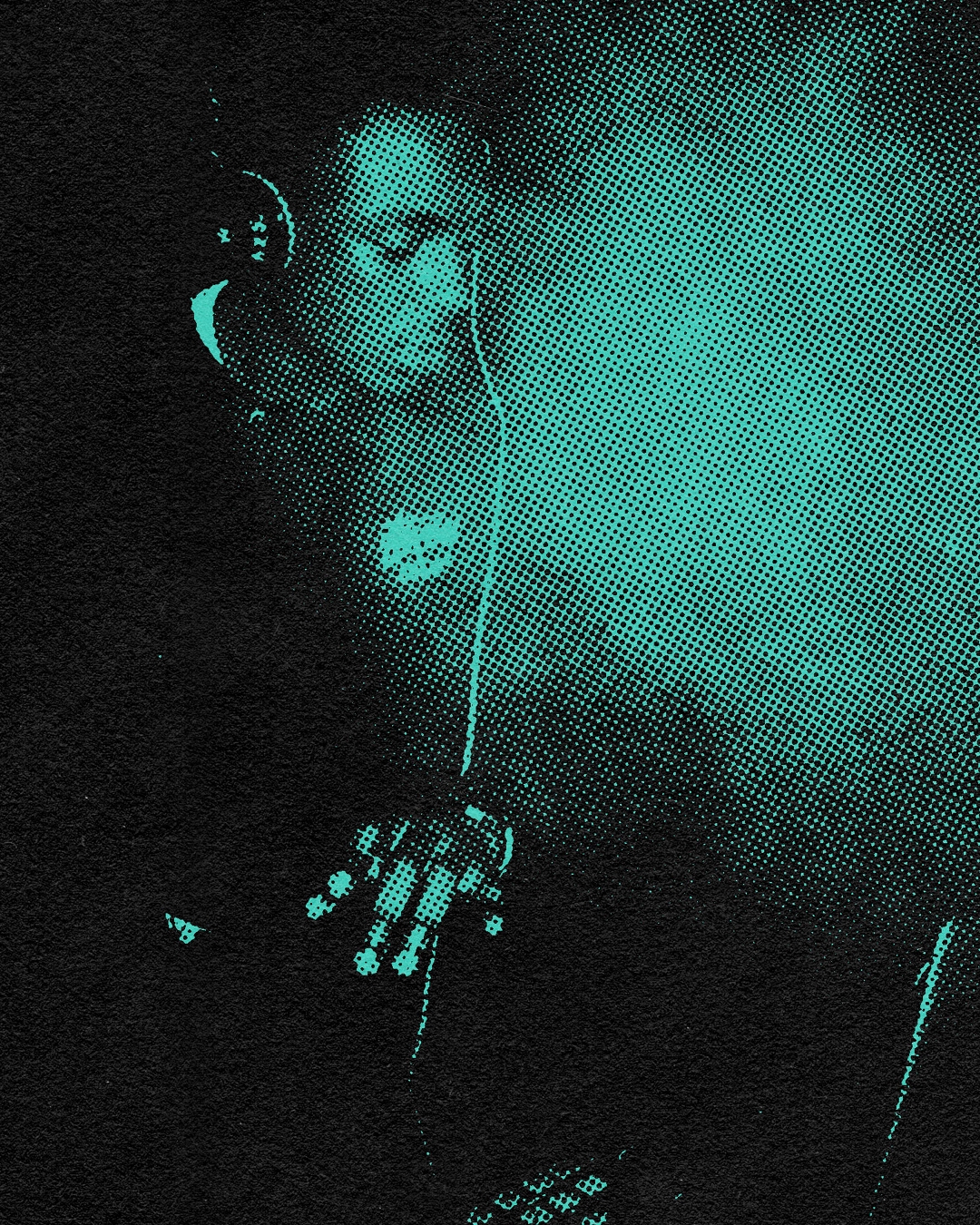
TIM REAPER
Tim Reaper, AKA Ed, is one of London’s finest jungle producers who's been putting in the work for years. In 2021, his career took off to new, sparkling heights. With releases across the board on Lobster Theremin, Hooversound, and more, Ed also fed his own imprint, Future Retro London, with tracks from some of jungle’s most relentless torchbearers, and treated us to a fierce, fast-paced set in The Lab LDN. All of which contributed to his placing in our top breakthrough DJs of the year.
You’ve had a huge year in 2021 - releases left, right and centre! What’s been your biggest drive this year?
For me, my biggest drive has been seeing how much things have grown and wanting to make the most of that, and seize the moment while I’m able to.
Future Retro London has blown up too, how has that been going?
It’s been going great, there have been five releases out on the label in the past three months and they’ve all done well, plus the first club night took place in London a few weeks ago and I think it went really well, quite a relief to have finally done the event after it was initially postponed.
Given the way the genre is picking back up in popularity right now, do you think jungle is heading for a huge revival?
Yeah, it feels like this because it’s been getting so much attention from all sorts of people and it’s being recognised on bigger outlets and platforms than it once was, so to me, I think the revival is already well within swing!
Was it a surreal feeling to get behind the decks at big events after lockdown? How did the crowds react to your new music?
It was very surreal for me because before lockdown, I wasn’t really playing any events, and now all of a sudden I’m now playing jungle music both old and new to crowds that are much larger than I’m used to! Thankfully, they’ve been quite enthusiastic and receptive to what I play most times, so I haven’t felt too deflated about the return to clubbing.
Read this next: The 20 best jungle mixes you can listen to online
You said that you’re still currently working at the moment, how do you find the balance between work and production? Do they ever go hand-in-hand?
So far it’s not been too much of an issue, I reserve the main amount of music-related tasks to be handled outside of my working hours and I’ve been taking more time off to work around travelling for gigs. It's been quite manageable so far, but there's not been any crossover yet even though my day job is web development for a radio company!
How different does your life look now compared to a year ago? Are you more focused on music than before?
It’s hugely different now because there’s a lot more DJing going on, not just in terms of bookings but also in sorting out my NTS show every month and guest mixes for other stations and outlets, plus there’s more to be done on the Future Retro London record label in terms of dealing with customers, keeping on top of current orders and lining up stuff for future releases. After the first club night went well, I’ve also had to start making the most of the momentum from that to sort out follow-up Future Retro London club nights. Last year I was still quite focused on music, but it was at a more manageable level and pace, whereas now it’s a lot more full-on.
What’s next for you?
I’ve got the next Future Retro London club night planned for spring this year - plus a few other things. There are roughly 14 releases scheduled for this year on the record label and there's singles, EPs, and remixes in the pipeline for various labels inside and outside of the jungle scene.
Gemma Ross is Mixmag's Digital Intern, follow her on Twitter


